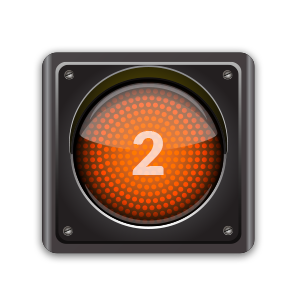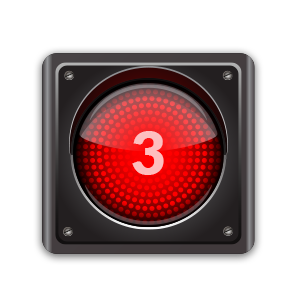SECTION 3: INSTITUCIONAL POLICIES
3.01 Code of Conduct
We have a strong belief in our positive approach to behavior. We treat our students as creative, independent, and thoughtful individuals trusting them to act responsibly.
An effective discipline program is essential in the teaching and learning process. USP offers an educational environment in which children can comfortably learn and develop. The staff is committed to teaching and reinforcing appropriate student behavior. Camaraderie, respect, and problem-solving strategies are practiced by all staff members and students. Students are encouraged to consistently follow school rules of conduct, set a positive example for others, and always be conscious of how their behavior affects others.
Together, our goal at USP is to ensure that each student achieves success. We believe that parents play a fundamental role in helping our students achieve expectations, both academic and behavioral. The primary role of parents in school discipline is to continually show interest in and support for their children at school.
Students are expected to follow the USP Code of Conduct, with the ultimate goal of providing a positive learning climate. Our disciplinary approach is rooted in the USP golden rules. We expect from our students: camaraderie, responsibility, compassion, communication and courage.
EXPECTATIONS FOR COMMON AREAS
Students are expected to follow these behavior at school and school activities and functions:
CAMARADERIE (click on the different areas to learn expected behavior)
RESPONSIBILITY (click on the different areas to learn expected behavior)
COMPASSION (click on the different areas to learn expected behavior)
Generally, classroom teachers administer discipline, but when the situation warrants, the academic director becomes involved. Parents are not necessarily called on the first problem, as students are encouraged to take responsibility for their actions and to learn to meet the rules and expectations of the school.
We believe each student has the final responsibility for the consequences of his/her behavior. If your child exhibits unacceptable behavior at school, you may be asked to help us. With your cooperation and help, we can provide a positive, productive, and safe learning environment for your child.
Our Code of Conduct is designed with enough flexibility so that teachers can exercise judgment which is within the scope of the Code, their classroom behavior management system, the student’s personal behavior monitoring system, or any behaviors in relation to off-campus activities.
 LEVEL ONE INFRACTION
LEVEL ONE INFRACTION
Refer to minor misbehavior on the part of the student that disrupts orderly classroom procedures or school operations. These infractions will be addressed by the appropriate school personnel as well as contacting parents/guardians. Administrative action will typically not occur with these misbehaviors.
Examples But Not Limited To
- Disruptive Classroom/School Behavior
- Unauthorized presence in the buildinG
- Failure to complete or carry out directions
- Not wearing the seatbelt
- Possession of non-instructional items such as but not limited to cell phones, iPod’s, laser pointers, gaming devices.
- Verbal harassment or bullying of others
- Running or shouting in the halls
- Dishonesty
- Inappropriate language
Disciplinary Options
- Verbal or written warning
- Parental notification (email or phone call)
- Confiscation of non-instructional item
- Special Assignment (Reflective in nature)
- Detention
 LEVEL TWO INFRACTION
LEVEL TWO INFRACTION
Misbehavior that is frequent or serious enough that it disrupts the learning climate of the school and/or endangers the health or safety of others. These infractions, which usually result from the continuation of Level One incidents require the intervention of administrative personnel because the prior consequences have failed to modify the behavior. Also included in this level are misbehaviors which do not represent a direct threat to the health and safety of others, but whose educational consequences once again require a corrective action on the part of administrative personnel.
Examples But Not Limited To
- Continuation of Level One misconduct
- Abusive, obscene, or disrespectful language, writings, drawings, or gestures
- Forgery of any kind
- Bullying/Cyber Bullying
- Harassment
- Theft
- Vandalism
- Plagiarism/Cheating
- Defiance of authority, disrespectful behavior to staff
- Inappropriate use of technology
- Throwing food/objects
- Field Trip/Assembly Misbehavior
- Bus misconduct
Disciplinary Options
- Denial of other privileges
- Detention
 LEVEL THREE INFRACTION
LEVEL THREE INFRACTION
Acts that are frequent or serious in nature that disrupts the learning environment of the school or acts that pose a threat or danger to the health, safety, or welfare of others in the school. These acts will require administrative actions which could result in the immediate removal of the student from the school and possible intervention of other external agencies and/or authorities.
Examples But Not Limited To
- Continuation of or extreme Level II misconduct
- Fighting
- Verbal or Physical Threats
- Leaving school without permission
- Vandalism
- Indecent exposure
- Destruction of property
- Possession of a weapon
- Possession of drugs or alcohol
Disciplinary Options
- Out of School Suspension
- School will follow MEDUCA regulations, which may include referral to external professionals or authorities
As stated in the school contract, (Clause 7) parents will be responsible for any damages to the school property (intentional or not) and for other costs associated as a result of the students actions.
